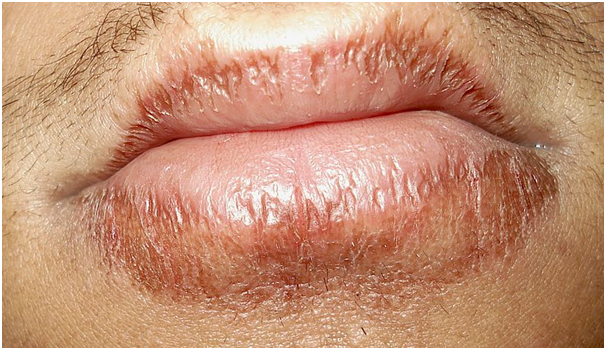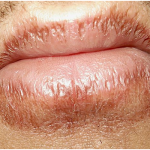Chapped lips are the worst – they sting, they burn and just generally cause discomfort and embarrassment. Unfortunately, the condition is sometimes very hard to avoid, particularly in extreme temperatures. Both the cold of winter and blistering heat of summer can leave lips sore and cracking, and once the cycle has begun, it can be very hard to recover.

Air conditioning and central heating don’t help the situation, as constantly going from warm to cold or vice versa will dry out your face and leave it tight and itchy. Luckily there are things you can do to prevent them.
Check out our tips below for avoiding the issue over the winter months:
1. Don’t wear long lasting lip sticks
Handy as it is not to have to constantly re-apply, long lasting lipsticks contain ingredients which will dry your lips out even more.
2. Buy a humidifier
Moisten the air in your home using a humidifier to counteract the effect of heating and heaters.
3. Choose your lip balm carefully
The lip balm you choose should contain a nourishing base, such as beeswax or shea. This will keep you lips moist. Lanolin is also a great addition which will leave your lips super soft.
4. Exfoliation
A gentle exfoliator to get rid of those old dead skin cells is pretty important during the winter. Lips will be supple and soft as a result.
5. Moisturise!
It is really important to moisturise properly, especially after exfoliation. Try Vichy Normaderm Anti-Blemish Hydrating Care, http://www.lifeandlooks.com/vichy-normaderm-hydrating-care.html.
6. SPF
Even in the winter is is advisable to choose a lip product which contains an SPF factor. In the summer this will help you to avoid sunburn, one of the top causes of chapped, dry lips.
7. Supplements, such as Vitamin B
Many of us simply don’t eat enough of the right things to keep our skin at its best. A Vitamin B supplement will help keep your lips hydrated.
8. Test for allergies
If chapped lips are still a real problem despite all of the above steps, it may be that you have an allergy to something. An allergy test will tell you if this is the case and if so, to what. A referral to an allergy clinic or a visit to a local practitioner can help.


